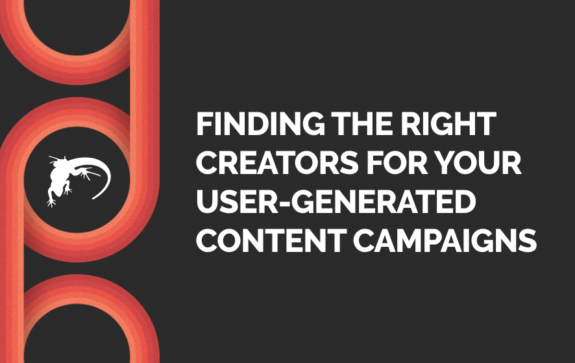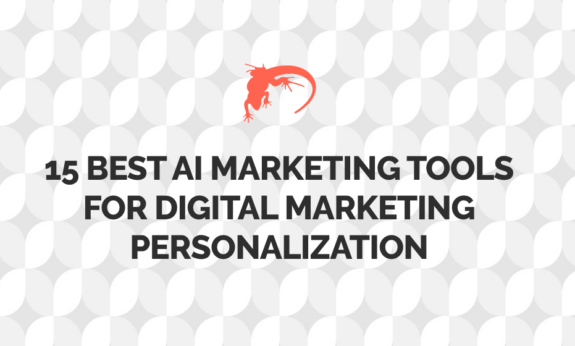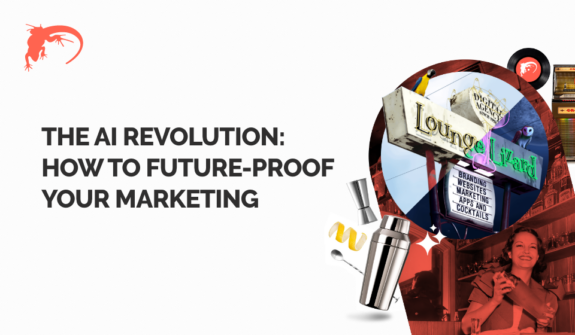Amplify Your Market Presence with Top B2B Brand Recognition Strategies

In the complex arena of business-to-business (B2B) markets, establishing strong brand recognition is not just an advantage—it’s an absolute necessity.
Unlike the impulse-driven consumer market, B2B transactions are characterized by longer sales cycles, higher stakes, and rational decision-making processes. This environment demands strategies that can pierce through the noise and firmly plant a brand in the collective consciousness of critical decision-makers.
It’s important to delve into the top B2B brand recognition strategies, exploring innovative tactics that go beyond traditional marketing paradigms. From leveraging digital platforms for thought leadership to fostering robust partnerships that amplify brand presence, it’s imperative to create a strategy with a multifaceted approach that ensures your brand not only resonates with your corporate clientele but also stands as a benchmark of reliability and expertise in your industry.
What are the Phases of B2B Brand Recognition and a Strong Presence?
Establishing a robust brand presence in the B2B sector is a nuanced and multi-phased journey. It demands not just understanding one’s unique value proposition but also how to effectively communicate and cement this within the minds of corporate customers.
From initial awareness to brand advocacy, a strong marketing and brand strategy will enable you to build a B2B brand that doesn’t just exist but actually thrives in the competitive marketplace. Whether creating a compelling brand narrative or leveraging customer experiences, each phase plays a critical role in how a brand is perceived and can ultimately influence its success.
Let’s explore the various phases of B2B brand recognition, outlining how each stage builds upon the last to create a solid and enduring brand presence.
Brand Awareness
B2B Brand awareness refers to the extent to which a target audience recognizes and is familiar with a particular brand. It is a crucial metric in marketing and branding because it indicates how well a B2B brand is known and how easily it can be recalled or recognized by potential customers.
When you have strong B2B brand recall, business decision-makers can identify a brand when presented with its name and logo or other visual or auditory cues. For example, seeing the Apple logo, you immediately recognize it as the Apple brand, or when asked to name a soft drink brand, you immediately think of Coca-Cola or Pepsi.
Brand Recognition
This is the stage where consumers can recognize the B2B brand from its visual symbols or products. It doesn’t mean the potential buyer prefers or even likes it; they simply recognize it. This can result from repeated exposure to the brand through various marketing and social media efforts.
High B2B brand recognition means that a brand is easily identifiable and memorable to people in the workplace, which can lead to increased trust, preference, and customer loyalty. Companies invest in marketing and branding strategies to build and strengthen brand recognition, as it can significantly influence purchasing decisions and help a B2B brand stand out in a crowded market.
Brand Preference
Business decision-makers prefer one brand over its competitors at this level due to past positive experiences or effective marketing. They might choose this brand because they perceive it to be superior or because it aligns with their product’s image.
Based on cultivating positive perceptions, experiences, or associations with that B2B brand, a customer’s preference can be influenced by various factors, including the brand’s reputation, quality, price, marketing efforts, customer service, and the emotional or psychological connections with the brand. Companies often strive to build and maintain B2B brand preference as it can lead to increased customer loyalty, higher sales, and a clear competitive advantage in the marketplace.
Brand Loyalty
This is when a business decision-maker repeatedly purchases the same brand over time rather than choosing a competitor. This loyalty can be due to satisfaction with the product, excellent customer service, high switching costs, or emotional connections.
Loyal customers may also recommend the brand to others, serving as B2B brand ambassadors.
Brand Advocacy
Brand advocacy refers to the active support, promotion, and positive representation of a brand or company by its customers, employees, or other stakeholders. B2B brand advocates are individuals or groups who genuinely believe in a brand’s products, services, values, or mission and willingly share their positive experiences and opinions with others.
Brand advocacy often occurs organically when satisfied customers or dedicated employees become vocal advocates for a brand. They may do this by recommending the brand to friends and family, writing positive reviews, sharing content on social media, participating in loyalty programs, or even defending the brand in online discussions.
Companies can also cultivate and encourage B2B brand advocacy through various strategies, such as providing exceptional customer service, offering loyalty rewards, fostering a strong company culture, and engaging with their audience on social media platforms. Having loyal brand advocates can lead to increased brand awareness, trust, and customer loyalty, ultimately contributing to a company’s success and reputation.
Amplifying Your Brand: Mastering B2B Brand Recognition in a Competitive Market
Now that we understand the phases of branding let’s talk about building a B2B brand strategy that sets the foundation for how a company is perceived in the marketplace and how it can distinguish itself from competitors.
Unlike B2C (Business-to-Consumer) branding, which often focuses on emotional appeal, B2B branding typically revolves around building trust, demonstrating expertise, and establishing a reputation for reliability and excellent service.
A successful B2B brand strategy should begin with a comprehensive understanding of the target market and the business customers you aim to serve. Identifying and understanding these businesses’ specific needs, pain points, and decision-making processes is critical. This involves not only demographic research but also a deep dive into the psychographics of the businesses you hope to serve.
Here is a step-by-step guide to crafting a strong B2B brand strategy that gets results:
1. Crafting Your Identity—The Art of Defining Your Brand
Struggling to stand out in the crowded B2B landscape? It starts with defining who you are.
Crafting your B2B identity refers to the process of developing and defining a distinct and consistent professional image or persona for your business when interacting with other businesses. This identity encompasses various aspects of your brand, including your values, mission, messaging and tone, and overall reputation within the business community.
2. The Differentiation Game—Elevating Your Brand Above the Rest
Elevating your B2B brand means not blending into the background. What makes your brand different?
Using the power of differentiation allows you to leverage your unique selling propositions to capture the attention of your target audience. You want your company to stand out, not just for being different, but for being the solution your B2B customers didn’t know they needed.
Here are some great examples of companies that differentiate themselves in the marketplace:
- Salesforce – Salesforce has positioned itself as a leader in customer-focused technology, emphasizing its commitment to helping businesses build better customer relationships through its platform.
- HubSpot – HubSpot has differentiated itself by offering a comprehensive suite of inbound marketing tools. They focus on inbound marketing, content marketing, and providing educational resources to help businesses attract, engage, and delight customers.
- Amazon Web Services (AWS) – AWS is a pioneer in cloud computing services. It has set itself apart by constantly innovating, providing high reliability and scalability, and serving as a trusted partner for businesses looking to migrate to the cloud.
- Slack – Slack revolutionized internal communication within organizations by offering a user-friendly, real-time messaging platform for teams.
3. Omnipresence Is Key—Engaging Across Multiple Channels
Are you frustrated with low engagement rates? It’s time to diversify your approach by creating a robust multi-channel engagement strategy. From social media to webinars, choosing the proper channels that align with your business objectives is how to create a consistent brand voice across all platforms.
If you want great examples of expert multi-channel engagement programs (both B2B and B2C), look at Nike, Under Armour, Salesforce, Apple, Nordstrom, Google, or Lululemon.
4. Staying Ahead—Keeping Up with Current Trends
You always want your brand message to feel updated, so keeping your brand relevant is essential by staying abreast of industry trends. That means using trendspotting and innovation to ensure your brand is stands ahead of the curve.
From technology providers to data analytics companies to digital marketing agencies, it’s crucial to anticipate market shifts and adapt your B2B brand strategy and messaging to maintain and grow your brand recognition and business presence.
5. Authenticity Wins—The Power of Being Unique
Is your brand’s authenticity in question? In a world full of copies, authenticity is your secret weapon. There is a true art to authenticity in brand recognition and how to maintain it even as you scale your business. It entails letting your brand’s true personality shine through in every customer interaction – that’s the secret to building brand loyalty that lasts.
6. Thought Leadership—Your Brand as an Industry Beacon
Never underestimate the power of blogging and creating excellent content for your company’s website. Doing it well can transform your brand into a thought leader within your industry as a place competitors and peers turn to for guidance, knowledge, and information.
Position your brand as a trusted expert through insightful content that addresses your audience’s pain points and aspirations. Gain respect, trust, and recognition through valuable, educational content that is helpful to your audience and optimized for search results through a strong SEO program.
7. Purpose-Driven Branding—Establishing a Clear Brand Mission
Why does your brand exist? You want to communicate a clear, compelling brand purpose with a vital mission and values, not just for the sake of a tagline but as the guiding purpose for all your business operations. Defining and communicating your brand’s mission is a fantastic way to foster deeper connections with your B2B customers.
8. Deliver the Promise—Aligning Brand Promises with Customer Experience
Have you ever felt the sting of broken brand promises? It’s a surefire way to lose trust.
Understand the critical nature of delivering on your brand promises to align your brand’s messaging with the actual customer experience to build long-lasting customer relationships.
Companies like Monday.com, Microsoft, Qualtrics, and HubSpot thrive based on their attention to the customer experience and customer service detail. In this day and age of declining customer service, your business can stand out on service alone.
9. Reinforcing Trust: Reaching Your Customers Where They Are
Part of driving home the importance of a seamless brand experience across all touchpoints is creating trust, and a great way to do that is by crafting and presenting customer testimonials and case studies that highlight your successes. This can be great video, audio, or written content that can be showcased on your website and used for digital marketing through social media, email campaigns, and other forms of B2B customer contact.
To Sum Up
In this comprehensive guide, we have tackled the complexities of B2B brand recognition head-on. Using these suggestions, you’ll be equipped with the knowledge to transform your brand into a memorable, distinctive, and respected player in the B2B market.
Lounge Lizard Worldwide is a trusted and proven leader in brand strategy, digital marketing, and web design and development services and is available to help you elevate your brand’s presence and prestige.
Contact Lounge Lizard today to talk with our expert team of Brandtenders and Marketing Mixologists who are ready to accelerate your brand presence in your industry.





